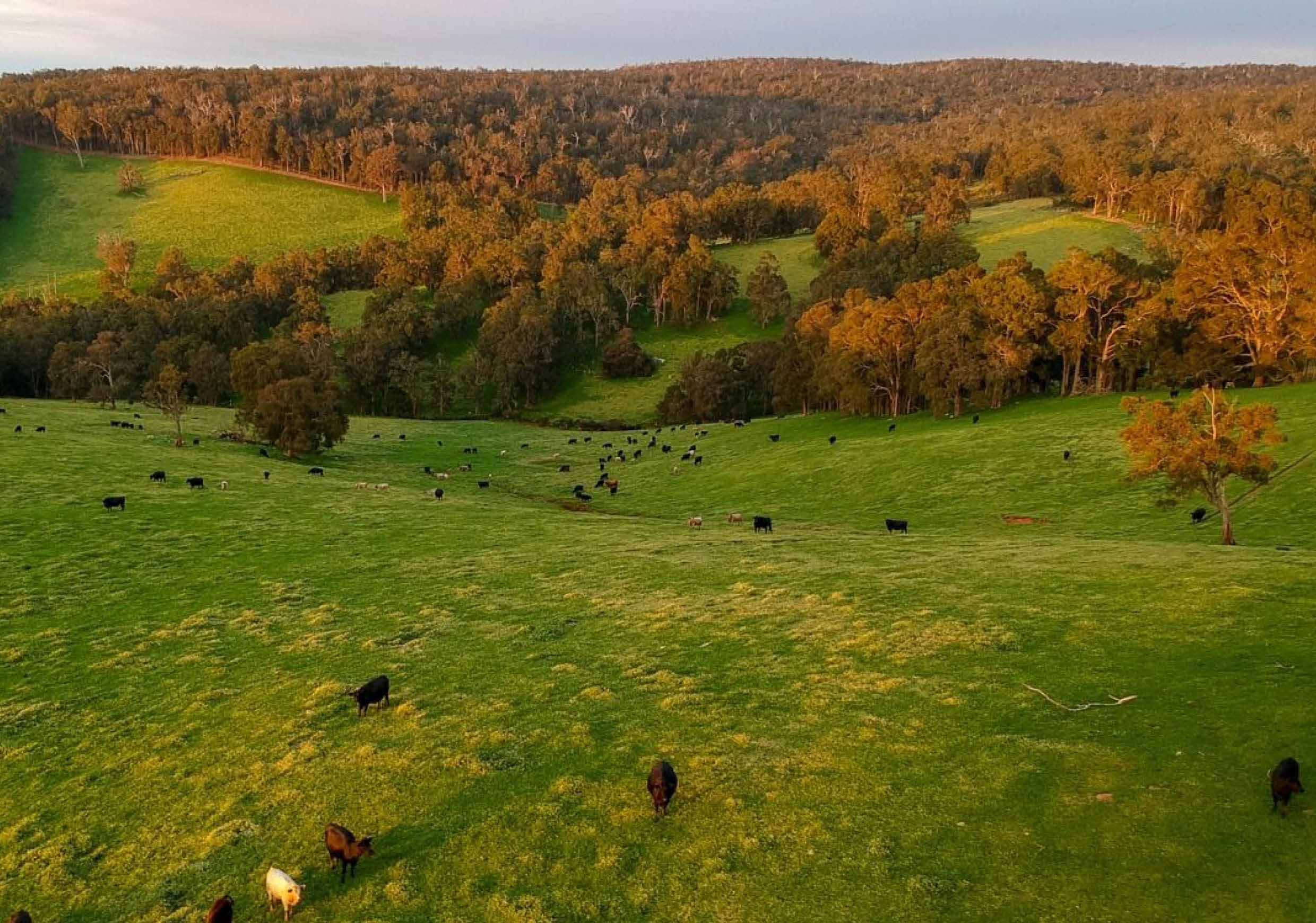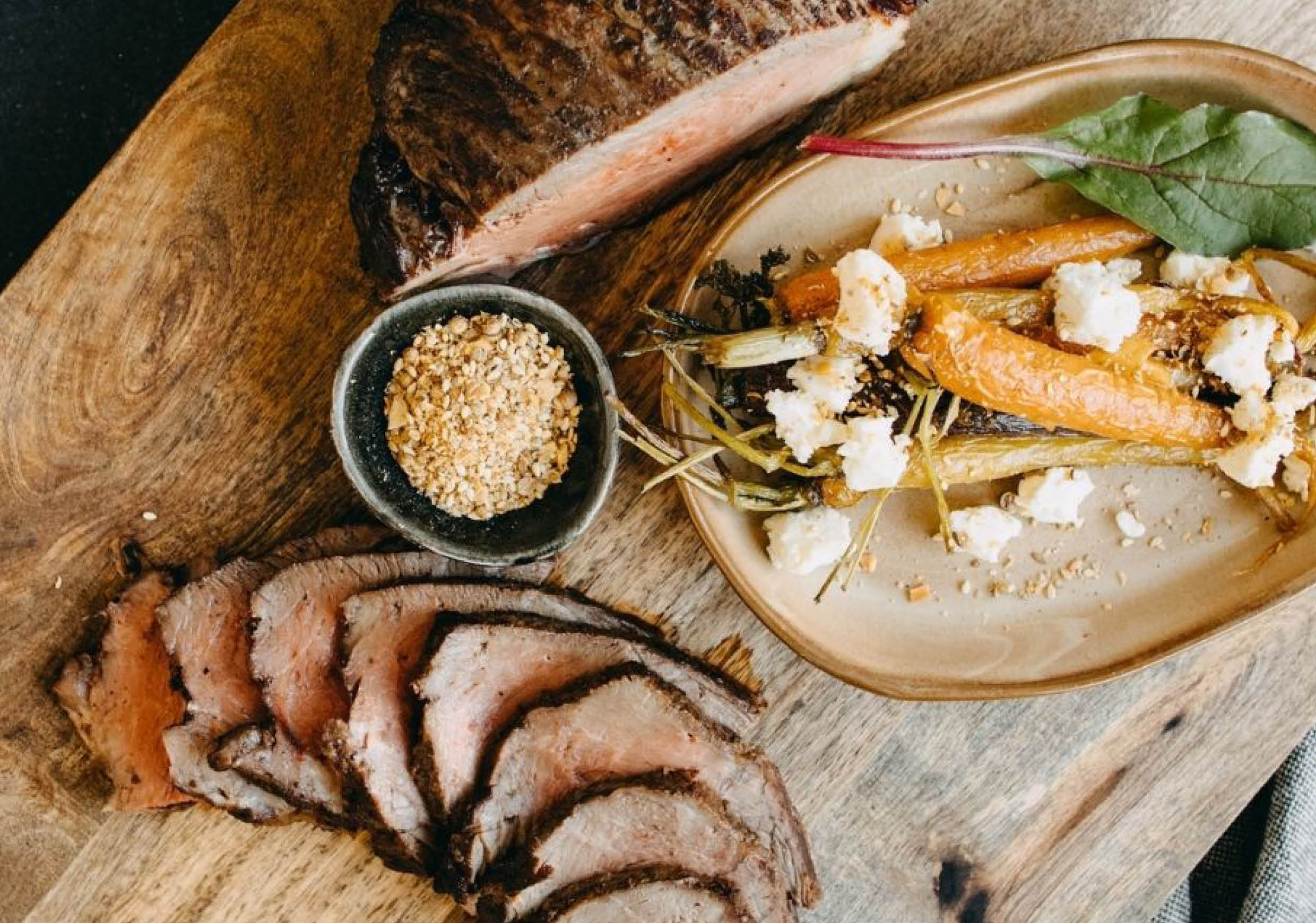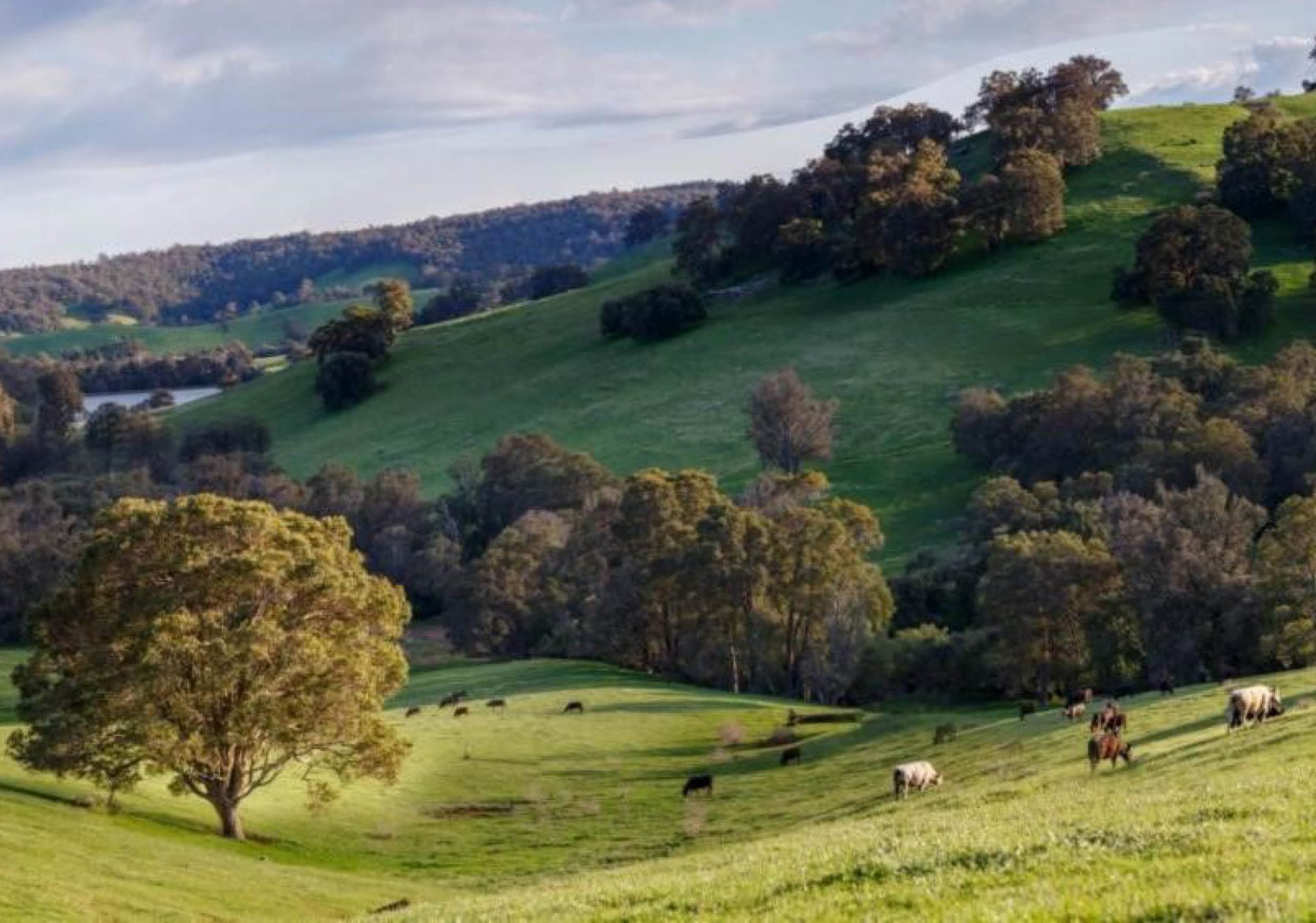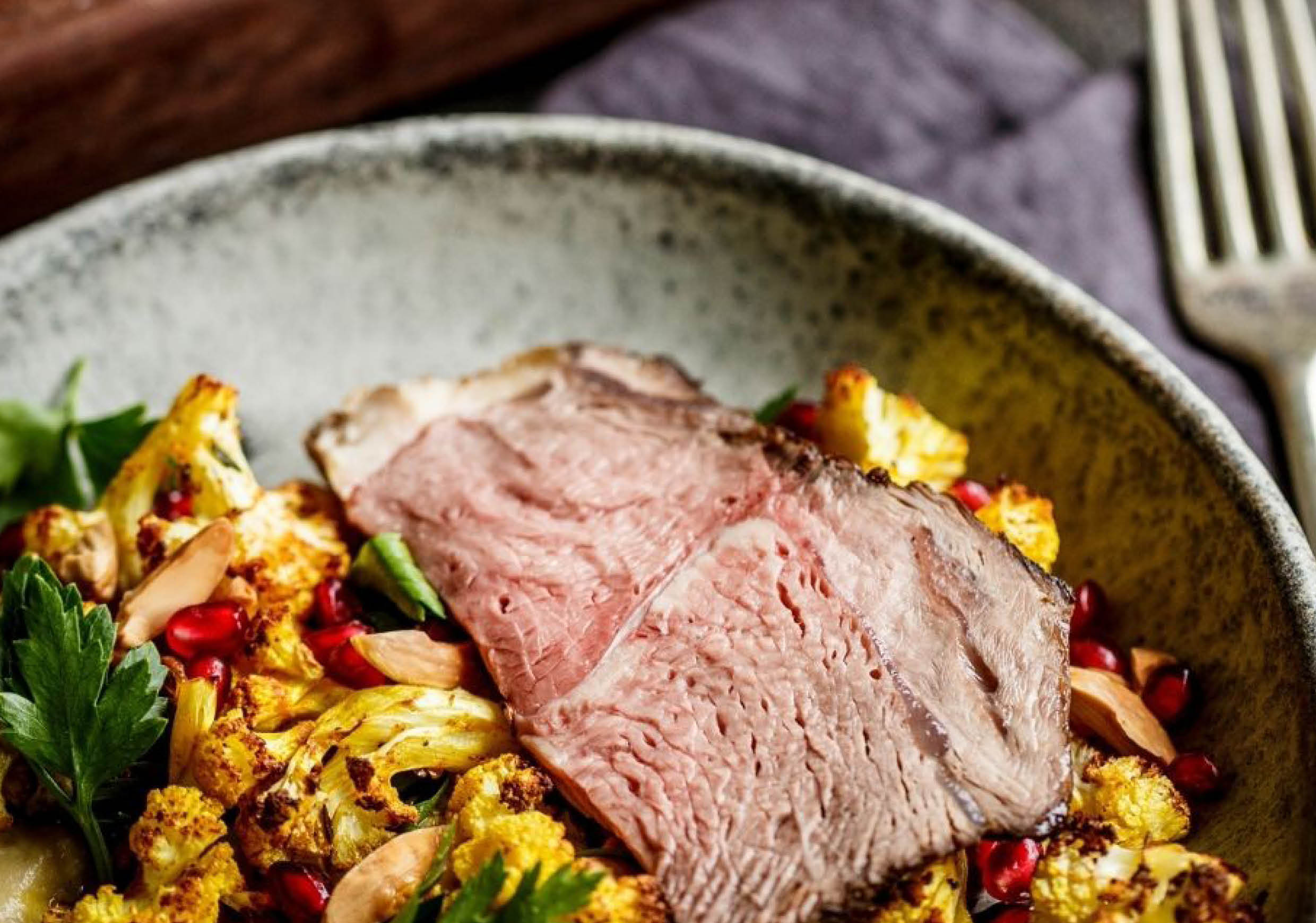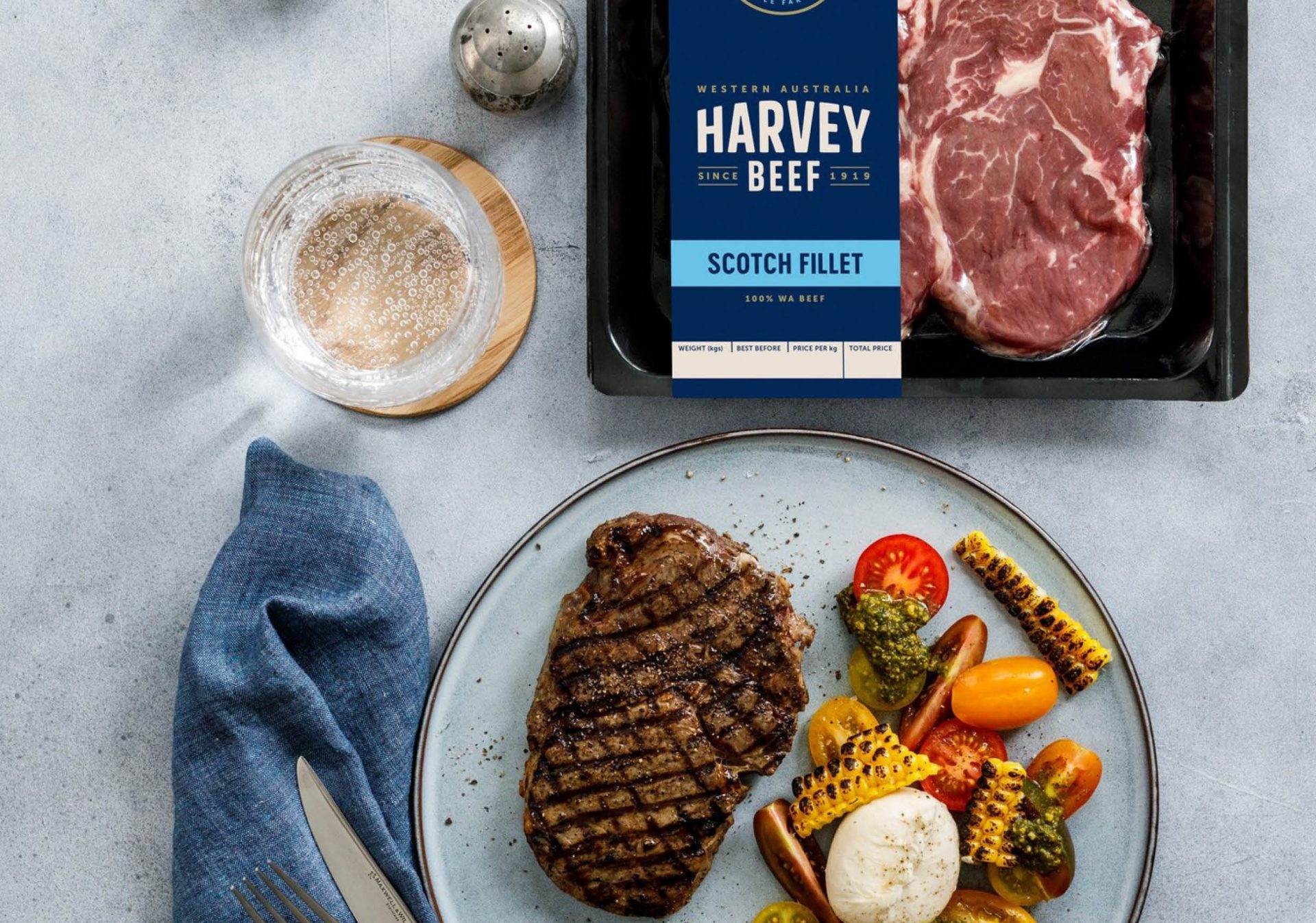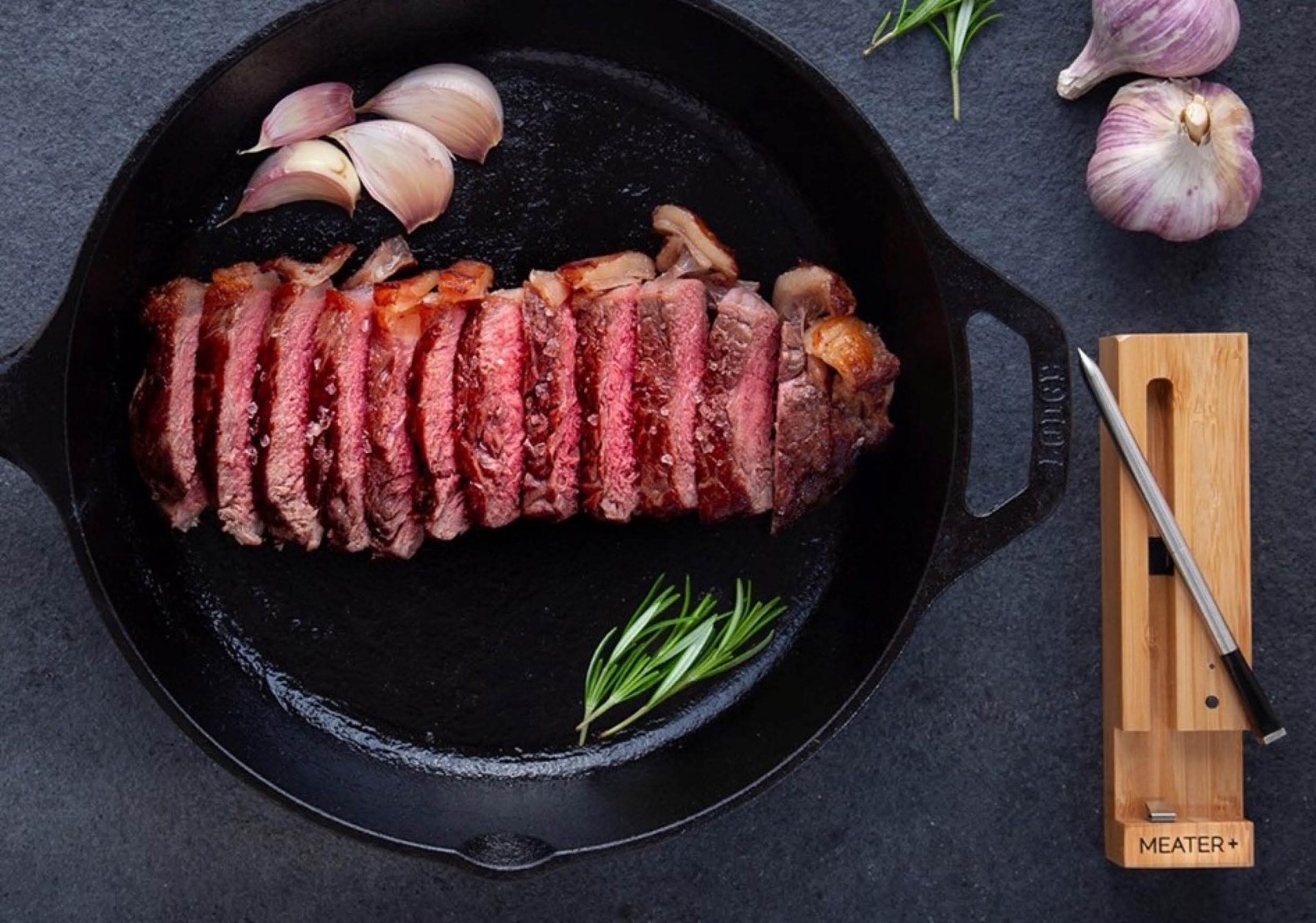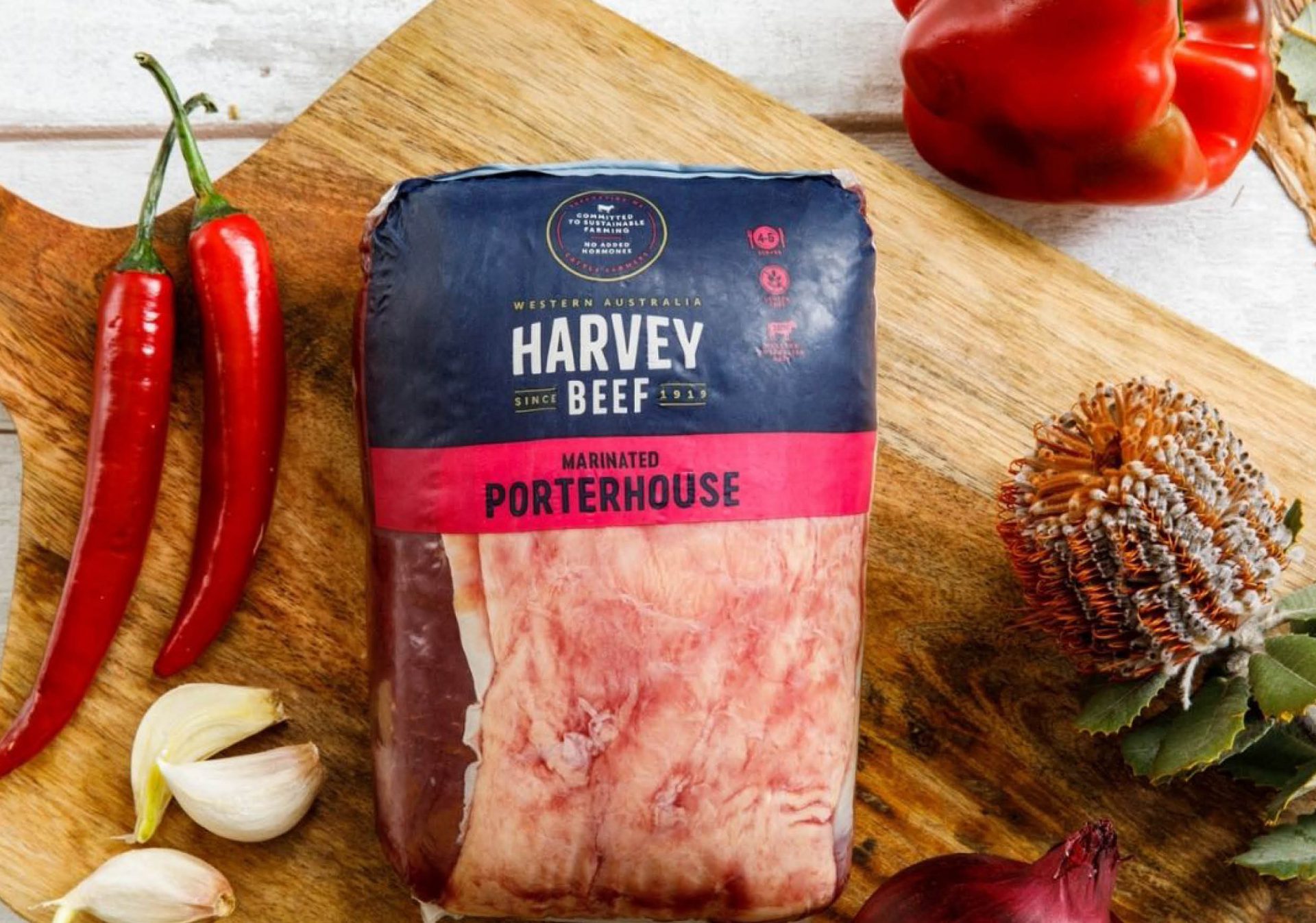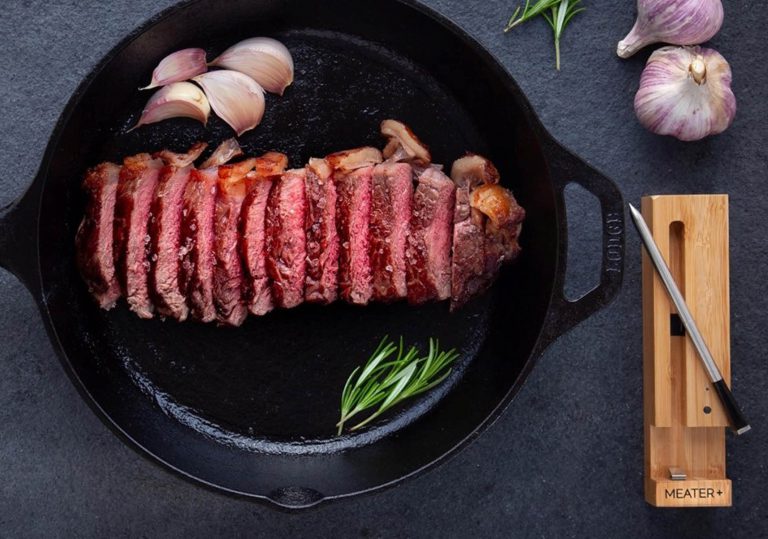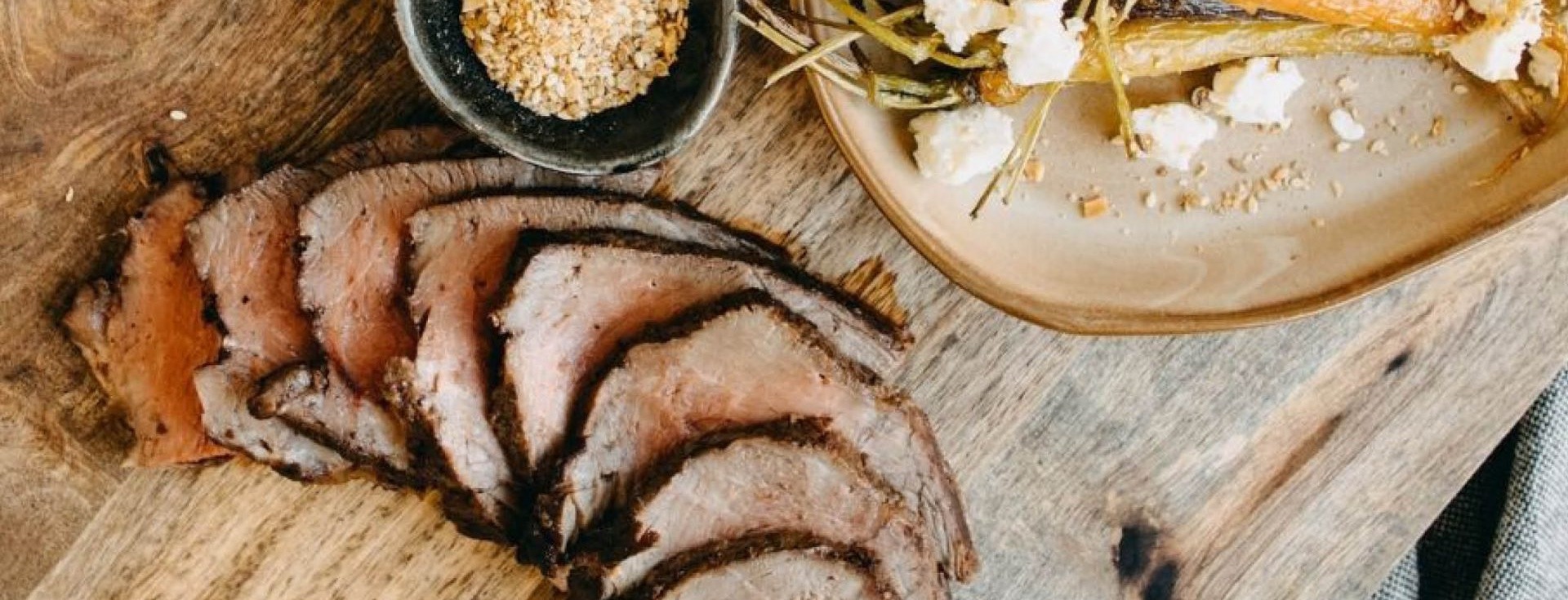
Beef, Lamb & Veal
The meat industry is a vital part of the economy, and our community of both large and small-scale producers are committed to bringing the best of the Harvey Region’s meat to local and international markets. With a focus on sustainability and ethical farming practices, this sector is poised for continued growth and success in the years to come.
Meat the Makers
- The meat industry is a vital part of the Harvey Region’s economy and has seen impressive growth in recent years because of the area’s fertile land, favourable climate, and agricultural expertise.
- Located in the heart of Western Australia’s intensive cattle country, known for producing high-quality beef, lamb, and veal for local and international markets.
- Local farmers are renowned for producing some of the finest beef and lamb in the world, with a reputation for excellent flavour and tenderness.
- It’s a vibrant community of large and small-scale meat producers dedicated to continuous improvement.
The Bottom Line
- In 2021, the Western Australia livestock sector had a gross value of production of over $3 billion, of which about 60% was exported (cattle represented 28% of this value).
- In 2023–24, beef production is forecast to increase again by 14% to 2,293 kilotons.
- Harvey Beef is Western Australia’s largest beef processor.
- Beef and veal is Australia’s largest global agricultural goods export, forecasted to be worth $12.1 billion in 2023-2024.
Opportunities on Offer
- There are strong export opportunities due to growing demand for high-quality meat products, particularly from international markets.
- Infrastructure is in place for processing, storage, and distribution of meat products, including abattoirs and cold storage facilities.
- There is an increasing focus on sustainable and ethical practices, such as regenerative agriculture, animal welfare standards, and carbon-neutral production.
- There are opportunities for collaboration and innovation, such as research and development partnerships, technology adoption, and supply chain optimisation.
- There is the potential for value-added products and niche markets, such as organic, grass-fed, or halal meat.
- Under current trade arrangements with the UK, Australian beef exports to the UK face duties as high as 12% + £254/100 kilograms. When the new Australia-United Free Trade Agreement is passed, we will see immediate access to a duty-free quota of 35,000 tonnes, rising to 110,000 tonnes by year 10.
- Demand from Australia’s major export destinations such as Japan, China, South Korea and the US is forecasted to increase in 2023–24 and continue through to 2027–28.

